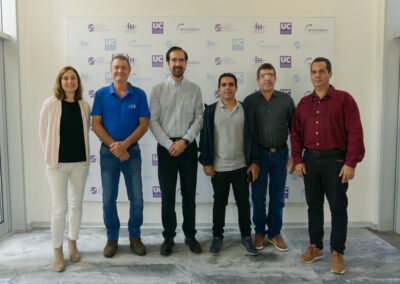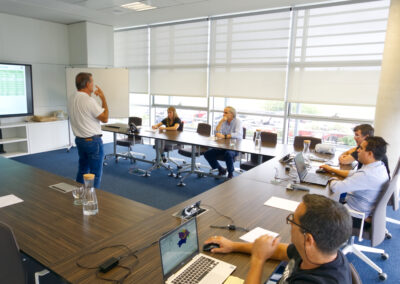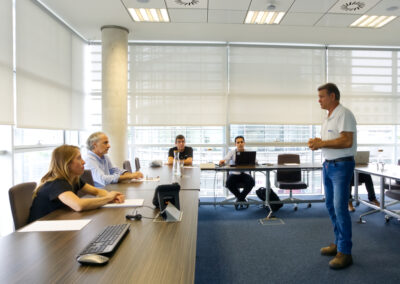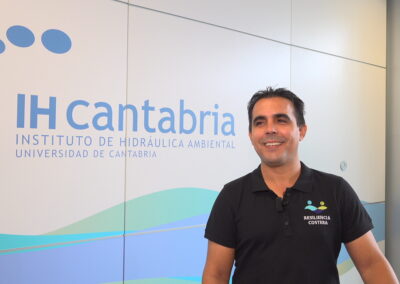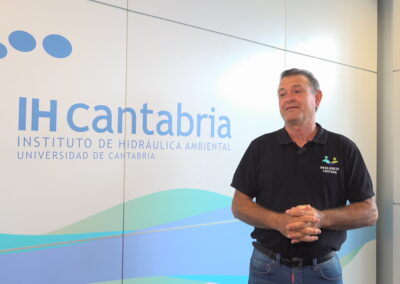NEWS
Exchange mission of knowledge and scientific and technological experiences between experts from IHCantabria and the Environmental Agency of Cuba.
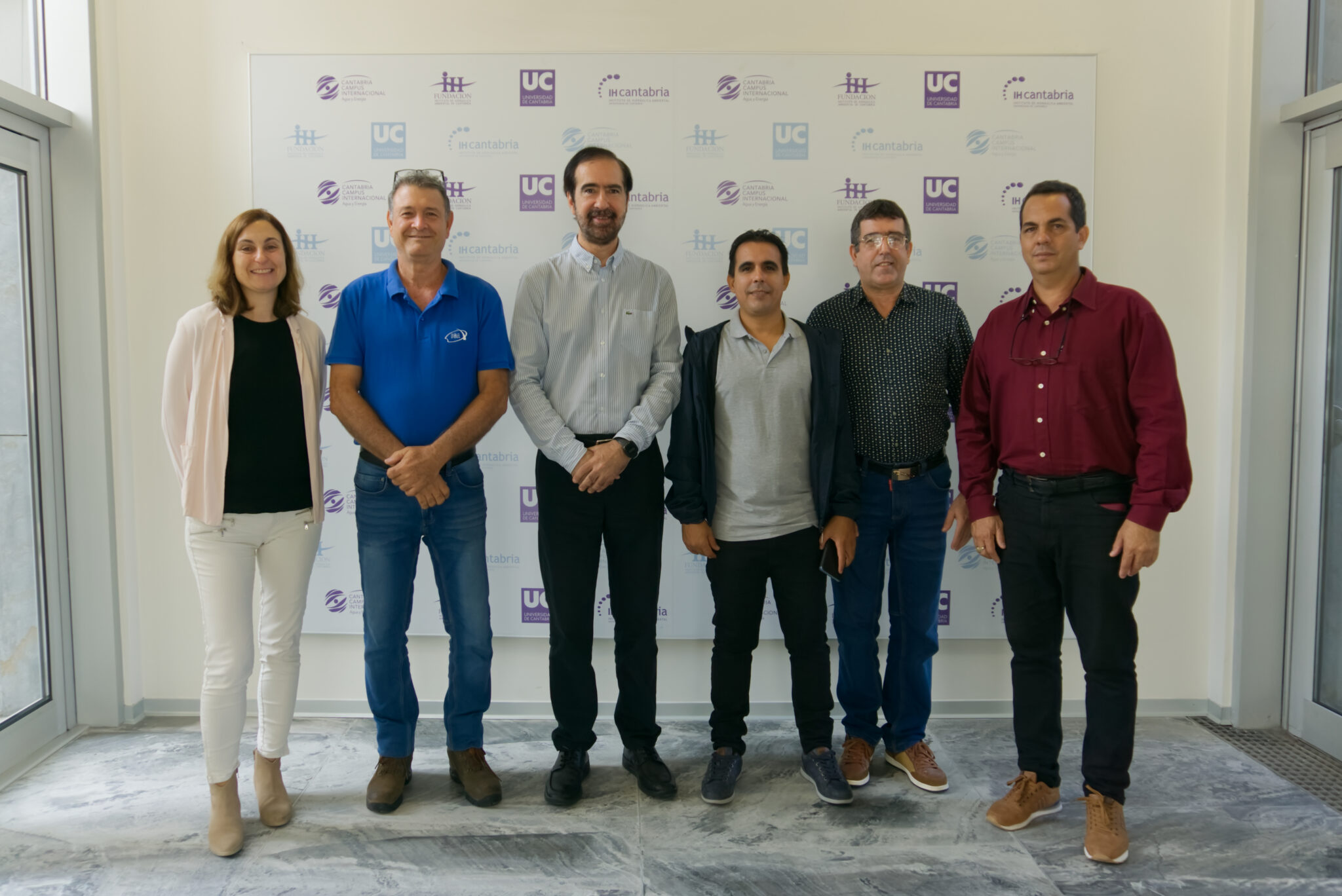
Focusing on knowledge management, IHCantabria received for a week a delegation of Cuban experts, who shared the results of the application of new methodologies in the coastal area of Havana, Cuba.
From June 12th to 15th, IHCantabria hosted a delegation of Cuban experts at its facilities, within the framework of the Work Program for the implementation of the inter-institutional agreement for scientific and technological cooperation signed between the Environmental Agency (AMA, for its acronym in Spanish) of the Ministry of Science, Technology and Environment of Cuba (CITMA, for its acronym in Spanish) and the Fundación Instituto de Hidráulica Ambiental de Cantabria, of Spain.
This exchange mission fulfilled the fifth activity of the Work Program, which is focused on “Knowledge Management (education, training, training and courses)”. One of the main objectives of this meeting was to share experiences on disaster risk reduction and adaptation to climate change in coastal areas of Cuba and Spain; in addition to presenting the international project “Adaptation Plan for the Havana Coastal Zone” (AdaptHabana), implemented by the Institute of Geophysics and Astronomy of the Environment Agency (IGA-AMA).
Another objective of this mission was to present the results obtained with the approval of the new methodologies generated in Cuba, based on the use of geographic information systems and the modeling of the dynamics of marine-coastal ecosystems, for current and future scenarios, in relation to the possible effects of climate change.
The results shared by the Cuban experts come from the application of an appropriate methodology to assess the risk of flooding due to heavy rains, or from studies concerning the risk generated by strong winds or the rise of the average sea level in Cuba’s coastal zone. One particularity of these studies is their projection into the future, as many are related to a Macroproject that began in 2008, with the objective of alerting Cuba’s decision makers about the scenarios of danger and vulnerability of its coastal zone, due to the rise in the average sea level that is predicted for the years 2050 and 2100.
“We want the scope of this Macroproject to be known in IHCantabria and the people who work in this institute to identify with the results obtained so far and how they could help us to develop it better,” says Sergio Luis Lorenzo Sánchez, head of the Macroproject at IGA-AMA, “because in this institute is the potential that our country also needs, to achieve better results in our projects”.
Other members of the Cuban delegation, in addition to Lorenzo Sánchez, were Yohanis de la Torre, deputy scientific director of IGA-AMA; Jorge Olivera, head of the Geomatics Group at IGA-AMA, and Erick Sedeño, Geomatics expert and programmer at the Camagüey Environmental Research Center. These Cuban experts exchanged knowledge and experiences with some professors from the University of Cantabria, many of whom work as management and research staff at IHCantabria, such as: Raúl Medina, Íñigo Losada, José Juanes, César Álvarez, Manuel del Jesús, Javier Lara, Melisa Menéndez, Ana Julia Abascal, Saúl Torres, María Merino, Ignacio Aguirre, José Manuel Álvarez and Ana Silió.



